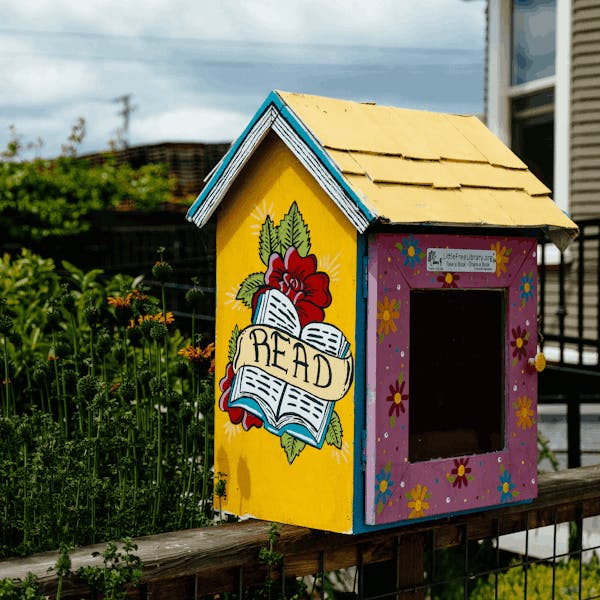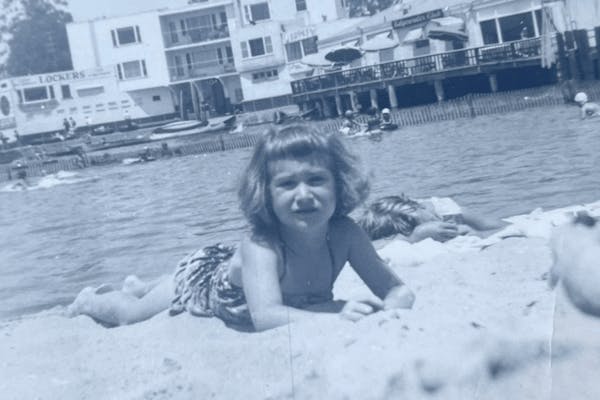Act Now
This giving season presents a unique opportunity to strengthen the place we call home. And this year, there's added reason to act.

Generosity in Action
New Beginnings, Constant Generosity
Midway through his career as a dentist, Richard Andrews went back to school…to become an artist. He started working in clay, but soon he needed a bigger medium.
“I used to fill auditorium stages with art installations that included live music,” he says, explaining one of his projects as an MFA student at San Jose State. Richard worked three days a week at his dental practice and then went to school at night.
Richard’s wife Leslie started her career as a probation officer after earning her bachelor’s degree. But mid-way through her career, she also switched gears, earning a master’s in business administration and eventually becoming vice president of human resources for an international tech company that had an office on the west side of Santa Cruz.
“We believe in the power of education,” Richard says simply. “It’s the key to a better life and it doesn’t have to be traditional academics. Trade schools and technical schools are just as important.”
Life changes midstream
Going back to school in midlife wasn’t the only big change Richard and Leslie made in their lives. They officially became parents in their mid-60s. Now both 80 years old, Richard and Leslie were married at 20 but never had biological children.
Drawing on her previous career in the juvenile justice system, Leslie has been a longtime volunteer with CASA of Santa Cruz County, serving as a court-appointed special advocate working one-on-one with children and youth in the foster care and/or juvenile probation systems. About 14 years ago, Leslie started advocating for, and quickly fell in love with, a toddler named Cherry. When it became clear that Cherry needed a safe, loving, and permanent home, Richard and Leslie first became her foster parents, and then officially adopted Cherry when she was about six years old.
It turns out that Cherry isn’t the first child Richard and Leslie raised. They also took in Leslie’s nephew at six years old—who has fetal alcohol syndrome— and helped him get the special services he needed through multiple schools, and continue to support him today as he lives independently.
Richard shrugs, “We didn’t think we were ever going to be parents. But these kids needed help. It was the right thing to do.”
Many ways to give
In addition to sharing their home with kids who needed one, Richard and Leslie want to help as many youth as possible. Richard says, “We’re not special and we’re not rich, but we give as much as we can.”
He and Leslie donate directly to many local nonprofit organizations, and they’ve also used the Community Foundation as a partner for charitable giving. “We especially love the funds that we can give to through the Community Foundation. Through our gifts to the Disaster Fund and the Greatest Needs Fund, we trust that our donations will get to where they are needed most.”
They also give generously to scholarship funds that have been established at the Foundation including scholarship funds to benefit juvenile justice and foster system involved youth and future teachers. “Helping students achieve their dreams of higher education is the first step on their path to a better life.”
“Working with the Community Foundation has been so helpful. They’ve been able to help us create a plan to help us make the biggest impact we can with the resources we have.”
- Richard Andrews
Caring for others now and in the future
Richard and Leslie have also partnered with the foundation to give from their retirement account. He says, “We mostly need the payments from our IRA to live off, but we also learned from our accountant that we donate from there. He told us that if you give your required minimum distribution to charity, it isn’t taxed. That way we can give even more.”
Using a memorandum of charitable intent (MOCI), Richard and Leslie have even named the Community Foundation as the beneficiary of their charitable remainder trusts. Their trusts were created after they sold property which they had bought in the 1970s. Giving through a charitable remainder trust allowed the Andrews to turn their appreciated real estate into an income stream for their loved ones without paying capital gains taxes when the assets were sold. Richard says, “With the trusts, we’re able to provide for our daughter and nephew now and then when we’re gone, the remaining balance will be a gift to the Community Foundation.”
Their MOCI, which is a simple document that the Community Foundation uses to help donors create and direct gifts through their will or trust, outlines how Richard and Leslie will ensure that their gift has an impact on future generations. The remaining balances of their charitable remainder trusts will be used to create endowed funds to support the causes they care most about including the environment and animal welfare; the arts and arts education; and care and support for women, children, and seniors.
Richard says, “Working with the Community Foundation has been so helpful. They’ve been able to help us create a plan to help us make the biggest impact we can with the resources we have.”
Learn more about how you can make an impact with your giving.
Connect with Hilary Bryant, Donor Services Director

